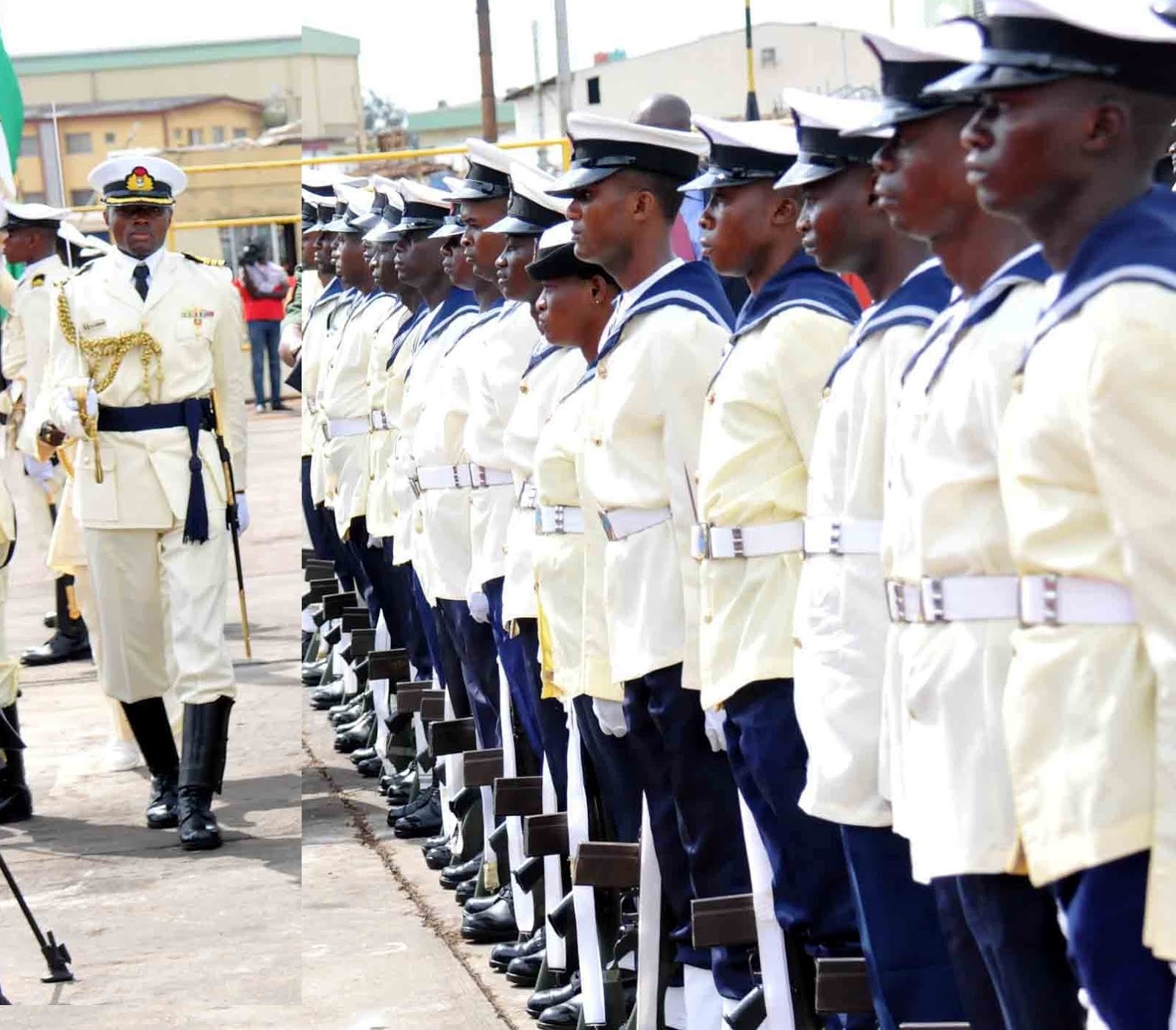Navy Nigeria: A Comprehensive Overview Of The Nigerian Navy
Navy Nigeria plays a crucial role in safeguarding the maritime interests of Nigeria, a nation endowed with vast coastal resources. With the increasing threats posed by pirates and illegal fishing, understanding the structure, functions, and historical significance of the Nigerian Navy is essential for both citizens and maritime stakeholders. This article delves deep into the Nigerian Navy, exploring its history, operations, and contributions to national security.
In this article, we will explore various aspects of the Nigerian Navy, including its organizational structure, operational capabilities, and the challenges it faces in modern maritime security. We will also discuss future prospects for the Navy as it adapts to new technologies and geopolitical dynamics in the Gulf of Guinea.
Table of Contents
- History of the Nigerian Navy
- Organizational Structure
- Operational Capabilities
- Challenges Faced by the Navy
- Training and Recruitment
- Future of the Nigerian Navy
- Conclusion
- References
History of the Nigerian Navy
The history of the Nigerian Navy dates back to the establishment of the Royal Nigerian Navy in 1956, during Nigeria's colonial era. Initially, it was a small force that operated under British command. The Nigerian Navy gained significant recognition after Nigeria attained independence in 1960, leading to its reorganization and the establishment of a distinct national identity.
Key Milestones in the Naval History
- 1956: Establishment of the Royal Nigerian Navy.
- 1960: Nigeria gains independence, leading to the reorganization of the Navy.
- 1975: The first Nigerian-built warship, NNS Aradu, is launched.
- 2000: The establishment of the Naval Headquarters in Abuja.
The Navy has since been involved in various operations, including peacekeeping missions and anti-piracy efforts in the Gulf of Guinea. Notably, the Nigerian Navy's participation in the United Nations peacekeeping missions in Liberia and Sierra Leone showcased its commitment to regional stability.
Organizational Structure
The Nigerian Navy is structured to ensure effective command and control across its various arms and units. It operates under the Ministry of Defence, with the Chief of Naval Staff (CNS) at its helm.
Key Components of the Naval Structure
- Headquarters: Located in Abuja, it oversees all naval operations.
- Naval Bases: Major bases include Lagos, Port Harcourt, and Calabar, serving as operational hubs.
- Naval Fleets: The Navy operates several fleets, including coastal patrol and amphibious warfare units.
This structure allows the Navy to respond effectively to maritime threats and coordinate with other branches of the military during joint operations.
Operational Capabilities
The Nigerian Navy's operational capabilities are designed to address various maritime security challenges, including piracy, smuggling, and illegal fishing. Through modernization initiatives, the Navy has enhanced its fleet and technological capabilities.
Modernization Efforts
- Acquisition of new vessels, including offshore patrol vessels and naval helicopters.
- Implementation of surveillance systems to monitor Nigeria's extensive maritime boundaries.
- Collaboration with international partners for joint exercises and training.
These efforts have significantly improved the Navy's response to maritime threats and its ability to protect national interests.
Challenges Faced by the Navy
Despite its advancements, the Nigerian Navy faces several challenges that hinder its effectiveness. These include inadequate funding, a lack of modern equipment, and the vastness of Nigeria's maritime domain.
Key Challenges
- Budget Constraints: Limited financial resources affect procurement and maintenance of naval assets.
- Corruption and Mismanagement: These issues can lead to ineffective use of allocated funds.
- Geographical Challenges: Nigeria's extensive coastline makes it difficult to monitor and patrol effectively.
Addressing these challenges is critical for the Navy to fulfill its mandate of safeguarding Nigeria's maritime interests.
Training and Recruitment
The Nigerian Navy places a strong emphasis on training and recruitment to build a capable workforce. Training programs are designed to equip personnel with the necessary skills and knowledge to operate modern naval equipment.
Training Initiatives
- Basic Naval Training: Provides foundational skills for new recruits.
- Advanced Tactical Training: Focuses on specialized skills for operational readiness.
- International Collaboration: The Navy engages in training exercises with foreign navies to enhance capabilities.
These initiatives ensure that the Navy remains prepared to tackle contemporary maritime security challenges.
Future of the Nigerian Navy
The future of the Nigerian Navy looks promising as it continues to evolve in response to emerging threats and technological advancements. The Navy's commitment to modernization and collaboration with international partners will play a crucial role in its success.
Strategic Goals
- Enhancing Maritime Domain Awareness: Investing in surveillance technologies to monitor maritime activities.
- Strengthening Regional Cooperation: Collaborating with neighboring countries to combat piracy and illegal fishing.
- Expanding Training Programs: Focusing on specialized training to meet evolving challenges.
These strategic goals will help position the Nigerian Navy as a leading maritime force in West Africa.
Conclusion
In conclusion, the Nigerian Navy plays a vital role in ensuring the security of Nigeria's maritime interests. With a rich history, a structured organization, and a commitment to modernization, the Navy is well-equipped to tackle contemporary challenges. As Nigeria continues to develop its maritime capabilities, it is essential for stakeholders to support the Navy's efforts in safeguarding national interests. We encourage readers to share their thoughts and insights on the Nigerian Navy and its future prospects.
References
- Nigerian Navy Official Website: [Insert URL]
- International Maritime Organization Reports: [Insert URL]
- Academic Journals on Maritime Security: [Insert URL]
Exploring GFS Dublin: A Comprehensive Guide To The Premier Global Financial Services
Canelo Alvarez: A Comprehensive Biography Of A Boxing Legend
Exploring The World Of LazyTown Movie: A Fun Adventure For Kids

